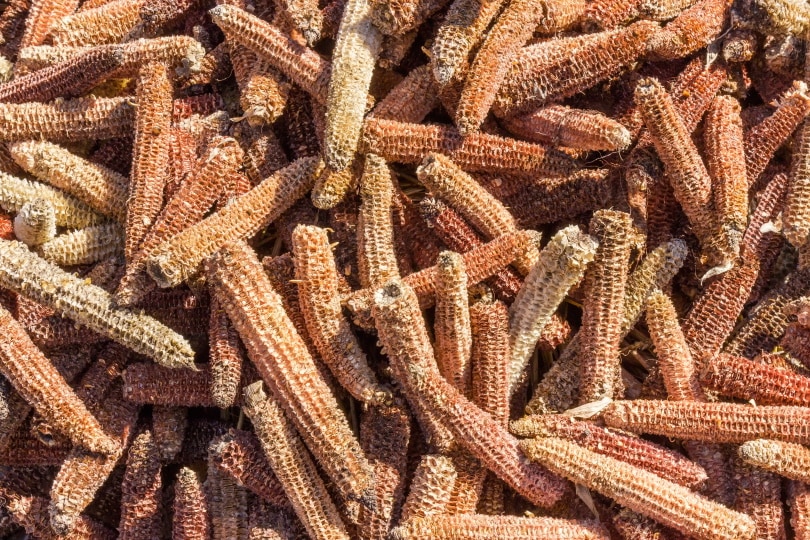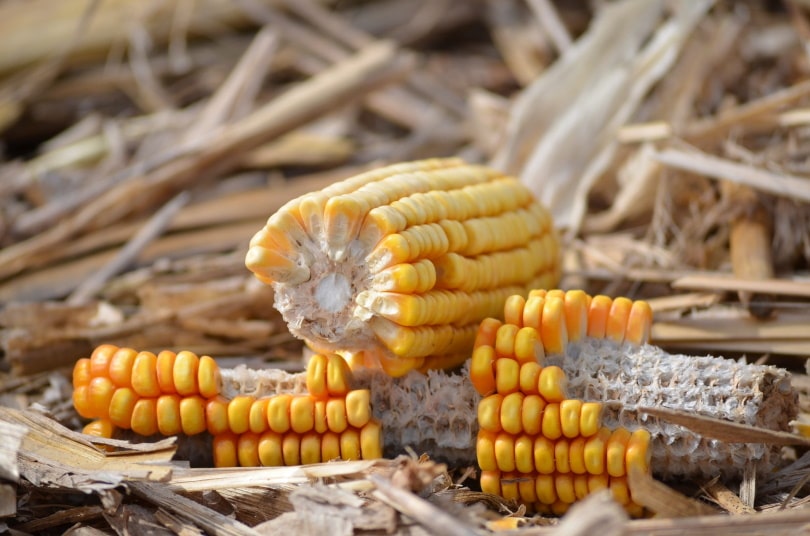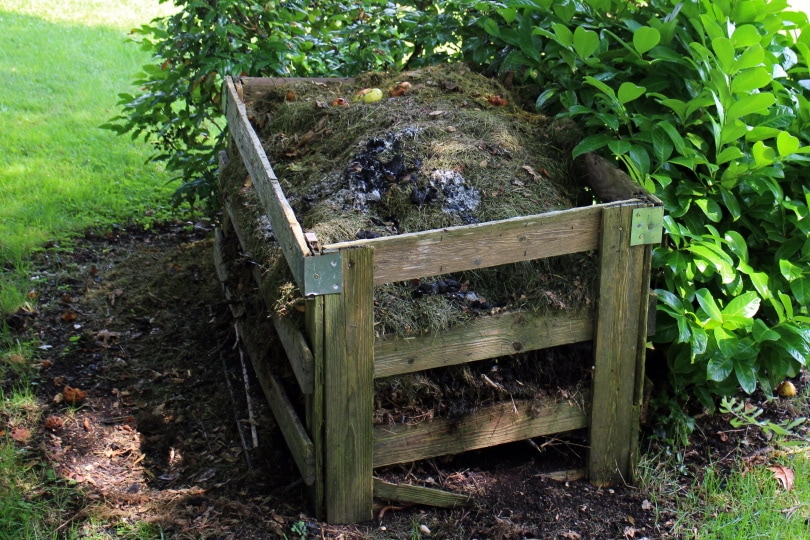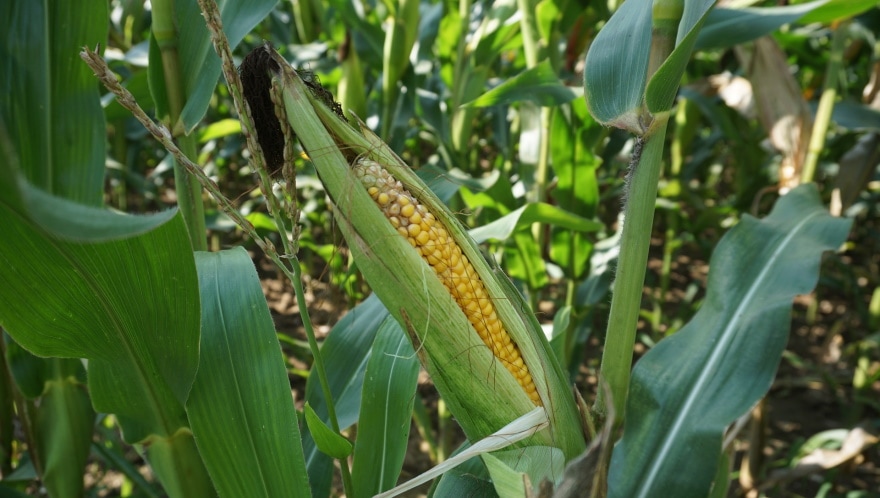Can You Compost Corn Cobs? What to Expect
-
Pete Ortiz
- Last updated:

Corn is one of the most popular foods in human history. Everyone eats corn in some capacity. During the summer, many Americans like to eat corn on the cob slathered with butter and hot off the grill. After you are done chowing down on the American staple, you have a choice, throw the cob away or put it in a compost pile. Many people simply throw their corn waste away because they don’t think that cobs can be composted. Can you compost corn cobs?
The answer is yes, you can compost corn cobs. Corn has some characteristics that make people think that it isn’t a good thing to put in the compost pile, but they are wrong. Corn can be composted, even the cobs. You just need to know what to expect.
What to Expect When Composting Corn Cobs
Corn cobs can be composted, but they do not compost like other vegetables. The reason some people think that corn cobs can’t be composted is that they take much longer to break down than other foods. That is because the corn cob is extremely large and dense compared to banana peels or coffee grounds. It takes a while for nature to start working on the strong inner core of the corn.
If you have a large and healthy compost pile, corn cobs won’t even take much longer than average to break down. Corn needs a lot of microorganisms, heat, and moisture to decompose quickly. Large healthy compost piles will have enough energy and momentum to break down corn cobs in as little as two months.
However, if you throw multiple corn cobs into a small, cold compost pile that doesn’t have a great track record, those cobs are going to sit for a long time before they start breaking down. They will all eventually break down. It just takes time.
If all of that sounds like a lot, you’re not alone. Many people just throw their corn cobs in the trash, but that isn’t a great option. Composting corn cobs have a twofold benefit that everyone should learn about before throwing their corn in the garbage.

Benefits of Composting Corn Cobs
Putting corn cobs into your compost pile actually has a lot of benefits that you might not know about at first glance. First, since corn cobs take more time than average to compost, they create pockets of heat and air inside the compost pile, which can help speed up the composting process for the surrounding organic material. It is best to put the corn cobs into the pile surrounded by other compost for the best results.
Second, composting corn cobs keeps them out of the landfill. Many environmentalists argue that corn cobs should not be put into the trash because they take up space in landfills and can take up to 20 years to decompose at the dump. Corn cobs only take a few months to decompose in a compost pile. Composting corn cobs reduces the amount of trash created, which can help the planet in the long run, especially if you eat a lot of corn.

What About Other Corn Parts?
The good news is that the cob is not the only part of corn that is compostable. All parts of the corn plant can be composted. That means the husks, the shells, the kernels, and the green parts can all be thrown into the compost pile. You do not have to worry about what parts of the corn will break down and which won’t. They will all compost given enough time and the right conditions.
Corn cobs are often the most common part of the corn plant to be composted because it is the largest, and it has the most leftovers after the rest of the corn is done being eaten or used. But if you find yourself with other parts of the corn left over as well, you can throw it all in at the same time.

Conclusion
Corn cobs can absolutely be composted. Not only can they be added to any compost pile, but corn cobs also actually provide some solid benefits when you do so. Corn can take longer than average to break down but letting them slowly compost in your garden is much better than shipping them off to landfills. The landfills continue to grow larger with each passing day, and even small contributions like composting your corn can go a long way.
Featured Image Credit: anmbph, Shutterstock
Contents


